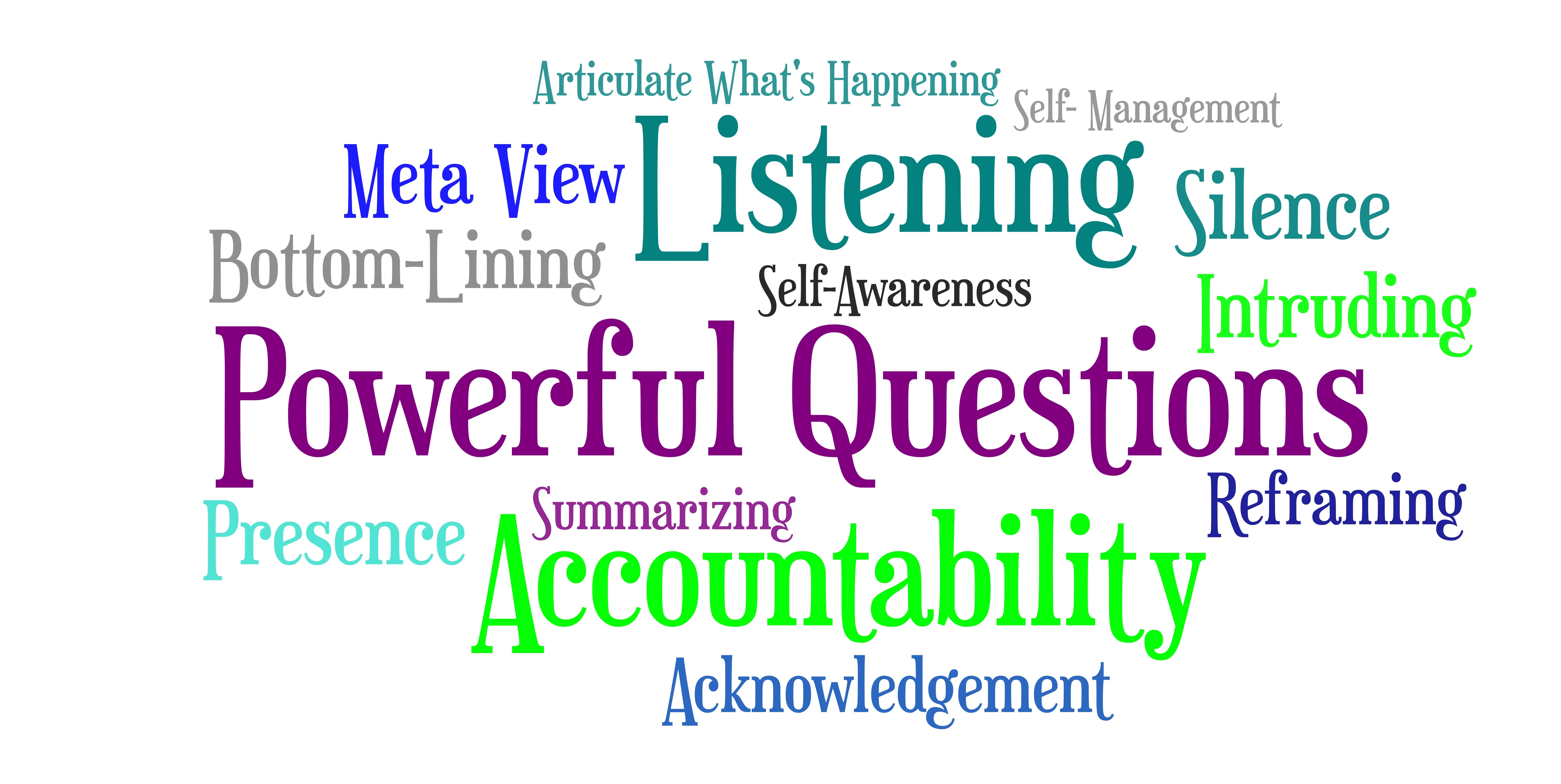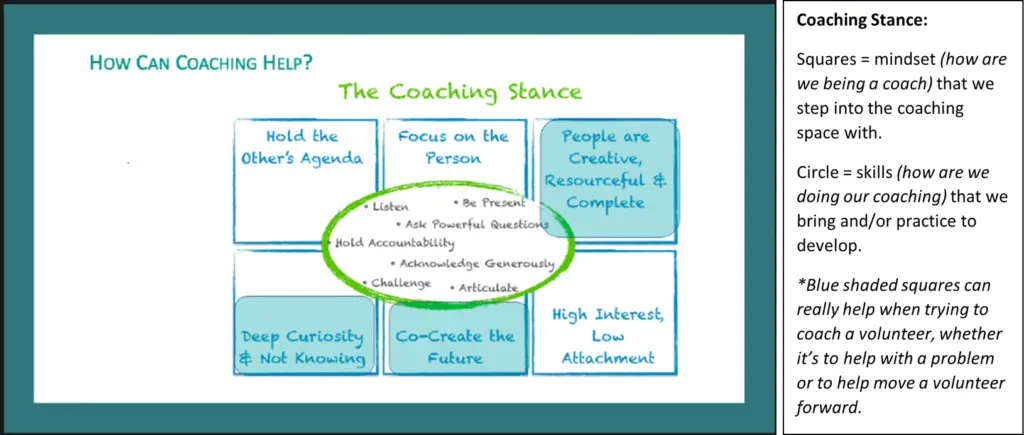So now that we’ve learned how to approach difficult conversations as opportunities rather than obstacles to avoid, how can we take those lessons further and apply them to conversations with our most precious resource … our volunteers?
In her 2020 CEX presentation Coaching Volunteers to Focus on What You Need, Laurie Reuben, President & CEO at Cheshire Consulting Group asks us to see every volunteer engagement, whether it is to correct a behavior or to expand on a volunteer’s potential, as a mutual learning opportunity for both the association leader (sharpens interpersonal skills) and for the volunteer (fosters personal growth). For our part as association leaders, approaching these conversations as a coach can also help put our volunteers on the right path and towards a successful experience that benefits all.
Tip: “We can’t coach someone that doesn’t want to be coached … However, we can have coaching-like conversations.” – Laurie Reuben
Below are some of the takeaways from the session: The Coaching Role: So how do we step into the role? The Coaching Stance is one place to look by helping us identify our coaching mindset (squares) and our coaching skillset (circles). In this session, we focused on several specific elements that we can use as association leaders.
Coaching mindset: Recognize that people are creative, resourceful and complete. Step into the conversation knowing that they have the ability to problem-solve and that when a volunteer solves their own problem as opposed to being told what to do, it is more likely to be acted upon. Show deep curiosity through inquiring. Look for opportunities to ask powerful questions to discover what the volunteer knows rather than assume what they don’t know. And co-create the future by determining how you can move forward together.
Coaching skillset: Know the 3 Levels of Listening and what your level of listening is, i.e., what questions are popping up for you during the conversation.
- Internal Listening: Listening to our own thoughts. Are you comparing what the speaker is saying to your own experiences or wondering why?
- Focused Listening: Focused on the speaker’s meaning. Are you exploring the speakers’ thoughts and motivations?
- Global Listening: Tuned in to all that’s going on. Can you articulate what’s happening and co-creating the future?
For success: Learn to listen at level 2 and 3
Ask powerful questions starting with What or How. Questions should short (what would help/ what’s missing?) and open ended (“what’s your perspective?” vs. “do you agree?”), challenge current assumptions, stimulate reflective thinking, and focus on the future (what you need to move forward). Finally, use “why” carefully (what led you to those conclusions vs. why did you think that?). For success: Stop asking volunteers for their ideas once the course is set. Stay on topic.
Of course, Laurie only touched the surface here. If you want to learn more, join us on January 6, 2021, for a virtual training session Coaching Volunteer Success where Laurie, along with Peggy Hoffman, will dig deeper into how we can use our inherent, and sometimes hidden, skills to coach volunteers toward success for our chapters AND the association! It’s free!
This 2020 CEX session was part of CRP Love: Treat Yourself & Hone Your Skills, a series of fast rounds focusing on developing and honing skills in specific areas including facilitation, tough conversations, communications, presentations, and pitching. Be sure to read a quick recap of the full CEX 2020 experience. Images from the presentation: Coaching Volunteers to Focus on What You Need.

